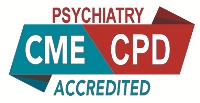Joyceline Ntoh Yuh
University of Oldenburg, Germany
Title: Psychological consequences of HIV-related stigma among African migrant women in Lower Saxony, Germany: What can we learn from their stories?
Biography
Biography: Joyceline Ntoh Yuh
Abstract
Epidemiological studies from Western EU countries shows that migration has an impact on HIV epidemiology.Meanwhile 2012/13 reports in Germany points a 70% increase in heterosexual transmission from immigrants with about 40-50% from Sub saharan Africa marking new diagnosis especially in women.
Moreover, HIV-related stigma among African women is rather complex especially when using the intersectionality framework for analysis which distinguishes the subjective experiences and realities of women's lives,not just as a single category stemming from a gender-based research critique. Meanwhile,HIV-stigma denotes the link between sero status and negative behavior toward people who are seropositive. Thus, such stigma will reflect guilt, shame, denial, prejudice, discrediting, discrimination, sterotypes, denial, rejection and self-blame associated with one’s serostatus. African-migrant women are particulary vulnerable to HIV-related stigma due to various factors which are often undermined or neglected. It is imperative to mention that women are generally supceptible to getting infected due to biological and other socio-cultural reasons compared to men,which eventually positions them into a high risk category. Moreover,women tend to be negatively perceived when infected and labeled promiscous for transimitting the virus to their partners, without knowing the transmission dynamic. Stigma futher constrains relationships within the family and in the community.This in the long term results into secrecy, affects HIV infection status disclosure and seeking of the much needed preventive services. Stigma affects seeking of health services since labelled people fear to seek health services and this affects their health in future.
This therefore highlights the link between HIV and mental health, paying attention to the fact that, people living with HIV among other vulnerable groups are prone to have mental problems compared to the general population. In so doing, their emotional, psychological and social well being becomes essential just as their physical health. Dealing with stigma attached to HIV further complicates the overall well being in realizing ones potentials in life, which tends to hamper their productivity and sense of purpose. The study shows the dilemmas and challenges faced by seropositive women in the face of HIV, dealing with problems such as anxiety about disclosure, depression, social isolation,stress, fear, rejection especially from partners.The pychological impact continues to affect sero-positive women in negative ways in living fulfilled lives, imapacting their well being with unfulfilled sexual satisfactions due to continuous use of condoms as expressed by most respondents. Thus, such insecurities becomes overwhelming at times pushing them to neglect their self esteem as women.Its is therefore prudent to design intereventions that highlight importance of cultural variables,migration, issues of gender and sexuality, access quality health care services if we are to achieve effective prevention strategies especially among migrant women.

